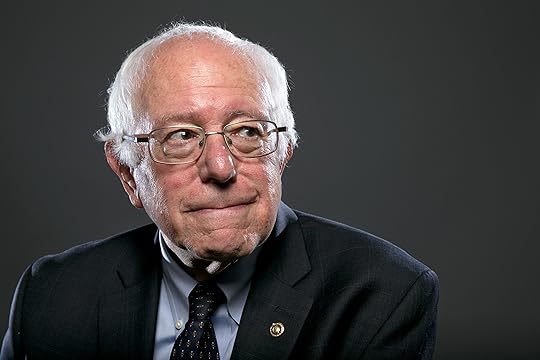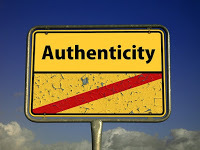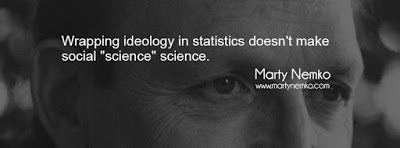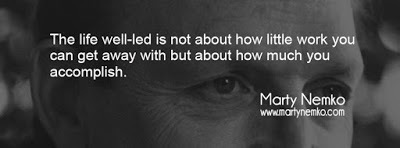Marty Nemko's Blog, page 346
January 30, 2016
What Will Happen after a Sanders Win...And Why That Scares Me

If Bernie Sanders becomes president, as a man who seems to be an unusually honest for a politician, it's reasonable to assume he'll keep most of his campaign promises.
These are some promises he made in a recent Rolling Stone interview, verbatim. The media is doing a very good job of lending support to those proposals (shown in italics), so here, for balance, after each, I raise my concerns.
A national health care program that guarantees health care to all people.
Because the 29 million currently uninsured are, on average, low-pay high-need, atop of the newly covered people under ObamaCare plus the millions more that will be covered after "comprehensive immigration reform," the following is likely: Pay for doctors, physical therapists, registered nurses, etc. will drop because the redistributionist Sanders administration will hold all the cards. That will further increase the already well-documented trend toward early exodus. That will lower quality below its, little-discussed but truly frightening level:
The shortage of health care providers will, of course, also lengthen wait-times to see a physician, get an operation, etc. Canada and England already suffer mightily from this and the U.S. has a much higher percentage of high-need but low-paying patients, so we can expect even longer waits.-- One in three patients admitted to a U.S. hospital will experience a medical error. One in three.-- Every year, 350,000 patients die from medical errors in U.S. hospitals alone. Every year. That makes medical errors the third leading cause of death, right behind heart disease and cancer.-- Every day, 10,000 people suffer from unnecessary complications. Every day.
Hard-bargaining by the government will result in lower payments to drug companies and medical equipment suppliers. Yes, that will save money but disincent development of new drugs and equipment.
We may, as a nation, decide that health care is a right. But is it a right for non-payers to get the same level of care as the people who have paid mightily into the system?
Make public colleges and universities tuition-free.
The net impact would be to extend what we do K-12 to K-16. And how's K-12 system working? While we spend #1 per capita in the world on education, we rank near the bottom among developed nations in student achievement. And despite a half-century and literally trillions of dollars specifically to close the achievement gap, it remains nearly as wide as ever. And of course, if the users of colleges (its students) aren't paying but the taxpayer is, is that fair? Plus, if the students have no skin in the game, they have less motivation to pick well let alone do well in college.
We need a massive federal jobs program. We have legislation that I will fight for, which would create up to 13 million jobs.
But we already spend trillions in taxes on infrastructure, etc. But do you or I really feel spending more to provide a job for someone whom no one wants to hire is a worthy use of our hard-earned money?
Raise the minimum wage to a living wage...Whether you're living in some rural area, whether you're living in New York City... $15 an hour is the benchmark we should be shooting for.
The net result will be much less hiring: either through automation or simply not hiring. At that low end of the population, many would-be employees simply aren't adding sufficient value to justify the cost: $15 an hour plus ObamaCare, Social Security, Medicare, Disability, and the costs of employee lawsuits.
Thus many employers would take a loss on each such employee, even if they were perfectly reliable, good learners, honest, and never sued the employer. Just as ATMs, electronic tolltakers, and supermarket self-checkout have cost millions of low-pay jobs, the more the minimum wage is raised, the more jobs will be eliminated or automated.
For example, the Washington Post worries that fast-food workers will be early to the chopping block. Already, walk into a Panera, Chili's or Applebys and your "waiter" can be an iPad bolted to your table--no tipping or annoying, interruptive waitperson. Automated baristas and bartenders now threaten to eliminate those last-resort jobs.
BuzzFeed suggests that even higher-end restaurants will replace chefs with robotic ones--Could we really tell let alone care if our caesar salad were made by Roboto than Roberto?
Of course, automation would have continued anyway but doubling the cost of a minimum-wage employee from $7.25 to $15 an hour plus the proportionate benefits must accelerate the job loss. Ironically, that will end up hurting the very segment of the population Sanders professes to care most about.
Also, redistributing that income from business owners to low-end workers takes money from the job creators and innovators to give to people whose spending has less ripple effect. Instead of expanding the business which creates jobs or innovations while providing the nation with better products and services, redistributing money to the poor means the it will more likely be spent on things with low ripple effect.
Who's gonna pay for all this?
On the campaign trail, Sanders talks about taxing "The Billionaire Class. When asked, he expands to Wall Street and multimillion-dollar inheritances but even that won't come close to paying for his programs. In fact, a just-released independent reportby the Tax Foundation indicates that Sanders' proposals would raise tax revenue over the next ten years by $13.6 trillion, with a projected "net loss of income to the average American (who already is struggling to make ends meet, let alone save enough for retirement or even to pay back student loans) of at least (emphases mine) 12.84 percent."
Sanders proposals that will cost us in non-cash ways
Everybody in this country who is 18 or older would be eligible to vote (without having to register.)
This will result in an electorate less able to vote intelligently and more subject to candidates' manipulative speeches and ads. Will that improve America?
Take marijuana out of the Controlled Substances Act and allow those states – there are four, plus D.C., and others will follow – to do what they wanna do and legalize marijuana.
Marijuana is far more dangerous than the media would have us believe. Per my TIME review of the literature , even the Obama Administration has concluded that marijuana endangers memory, mental health, motivation, cancer, cardiovascular disease, and automobile accidents.
Indeed, since legalization in Washington state, pot-related accidents have skyrocketed.
I'd sooner make alcohol illegal than legalize marijuana. Of course, compliance wouldn't be perfect but perfect is the enemy of the good. Prohibition caused a dramatic reduction in alcohol use and the attendant misery to the drinkers, family, coworkers, and car-accident victims.
So what's a person to do?
Even all this couldn't make me vote for Donald Trump but Hillary's proposals are almost as leftist as Sanders'. I may just stay home and have a glass of wine.
Published on January 30, 2016 01:10
What Will Happen after a Sanders Win...And Why That Scares Ms
 If Bernie Sanders becomes president, as a man who seems to be an unusually honest for a politician, it's reasonable to assume he'll keep most of his campaign promises.
If Bernie Sanders becomes president, as a man who seems to be an unusually honest for a politician, it's reasonable to assume he'll keep most of his campaign promises. These are some promises he made in a recent Rolling Stone interview, verbatim. The media is doing a very good job of lending support to those proposals (shown in italics), so here, for balance, after each, I raise my concerns.
A national health care program that guarantees health care to all people.
Because the 29 million currently uninsured are, on average, low-pay high-need, atop of the newly covered people under ObamaCare plus the millions more that will be covered after "comprehensive immigration reform," the following is likely:
Pay for doctors, physical therapists, registered nurses, etc. will drop because the redistributionist Sanders administration will hold all the cards. That will further increase the already well-documented trend toward early exodus. That will lower quality below its, little-discussed but truly frightening level:
-- One in three patients admitted to a U.S. hospital will experience a medical error. One in three.
-- Every year, 350,000 patients die from medical errors in U.S. hospitals alone. Every year. That makes medical errors the third leading cause of death, right behind heart disease and cancer.
The shortage of health care providers will, of course, also lengthen wait-times to see a physician, get an operation, etc.-- Every day, 10,000 people suffer from unnecessary complications. Every day.
Canada and England already suffer mightily from thiss and the U.S. has a much higher percentage of high-need but low-paying patients, so we can expect even longer waits.
Hard-bargaining by the government will result in lower payments to drug companies and medical equipment suppliers. Yes, that will save money but disincent development of new drugs and equipment.
We may, as a nation, decide that health care is a right. But is it a right for non-payers to get the same level of care as the people who have paid mightily into the system?
Make public colleges and universities tuition-free. The net impact would be to extend what we do K-12 to K-16. And how's K-12 system working? While we spend #1 per capita in the world on education, we rank near the bottom among developed nations in student achievement And despite a half-century and literally trillions of dollars specifically to close the achievement gap, it remains nearly as wide as ever. And of course, if the users of colleges, its students, aren't paying but the taxpayer is, is that fair? Plus, if the student has no skin in the game, there's less motivation to pick well let alone do well in college.
We need a massive federal jobs program. We have legislation that I will fight for, which would create up to 13 million jobs.
But we already spend trillions in taxes on infrastructure, etc. But do you or I really feel spending more to provide a job for someone whom no one wants to hire is a worthy use of our hard-earned money?
Raise the minimum wage to a living wage...Whether you're living in some rural area, whether you're living in New York City... $15 an hour is the benchmark we should be shooting for.
The net result will be much less hiring: either through automation or simply not hiring. At that low end of the population, many would-be employees simply aren't adding sufficient value to justify the cost: $15 an hour plus ObamaCare, Social Security, Medicare, Disability, and the costs of employee lawsuits.
Many employers would take a loss on them, even if these low-end employees were perfectly reliable, good learners, honest, and never sued the employer. Just as ATMs, electronic tolltakers, and supermarket self-checkout have cost millions of low-pay jobs, the higher the minimum wage is raised, the more jobs will be eliminated or automated.
For example, the Washington Post worries that fast-food workers will be early to the chopping block. Already, walk into a Panera, Chili's or Applebys and your "waiter" can be an iPad bolted to your table--no tipping or annoying, interruptive waitperson. BuzzFeed suggests that even higher-end restaurants will replace chefs with robotic ones--Could we really tell let alone care if our caesar salad were made by Roboto than Roberto? Automated baristas and bartenders now threaten to eliminate those last-resort jobs.
Of course, automation would have continued anyway but doubling the cost of a minimum-wage employee from $7.25 to $15 an hour plus the proportionate benefits must accelerate the job loss. Ironically, that will end up hurting the very segment of the population Sanders professes to care most about.
Also, redistributing that income from business owners to low-end workers takes money from the job creators and innovators to give to people whose spending has less ripple effect. Instead of expanding the business which creates jobs or innovations while providing the nation with better products and services, redistributing money to the poor means the it will more likely be spent on things with low ripple effect.
Who's gonna pay for all this?
On the campaign trail, Sanders talks about taxing "The Billionnaire Class. When asked, he expands to Wall Street and multimillion-dollar inheritances but even that won't come close to paying for his programs. In fact, a just-released independent report by the Tax Foundation indicates that Sanders' proposals would raise tax revenue over the next ten years by $13.6 trillion, with a projected "net loss of income to the average American (who already is struggling to make ends meet, let alone save enough for retirement or even to pay back student loans) of at least (emphases mine) 12.84 percent."
Sanders proposals that will cost us in non-cash ways
Everybody in this country who is 18 or older would be eligible to vote (without having to register.) This will result in an electorate less able to vote intelligently and more subject to candidates' manipulative speeches and ads. Will that improve America?
Take marijuana out of the Controlled Substances Act and allow those states – there are four, plus D.C., and others will follow – to do what they wanna do and legalize marijuana.
Marijuana is far more dangerous than the media would have us believe. Per my TIME review of the literature , even the Obama Administration has concluded that marijuana endangers memory, mental health, motivation, cancer, cardiovascular disease, and automobile accidents.
Indeed, since legalization in Washington state, pot-related accidents have skyrocketed.
I'd sooner make alcohol illegal than legalize marijuana. Of course, compliance wouldn't be perfect but perfect is the enemy of the good. Prohibition caused a dramatic reduction in alcohol use and the attendant misery to the drinkers, family, coworkers, and car-accident victims.
So what's a person to do?
Even all this couldn't make me vote for Donald Trump but Hillary's proposals are almost as leftist as Sanders'. I may just stay home and have a glass of wine.
Published on January 30, 2016 01:10
Toward Better Care: For Helping Professionals and Students
 Whether you're a helping professional, aspiring one, a patient, or could-be patient, I'd imagine you have questions about effectiveness.
Whether you're a helping professional, aspiring one, a patient, or could-be patient, I'd imagine you have questions about effectiveness.Perhaps you'll find this letter I sent to my UCSF medical students of value. I posted it as my PsychologyToday.com article today.
Published on January 30, 2016 00:46
January 28, 2016
Unhinged: A story about obsessive-compulsive disorder (OCD)
 I had intended to post Unhinged: A story about obsessive-compulsive disorder (OCD) as a three-part story and posted the first part yesterday. A couple of readers asked if I would post the entire story today. HERE is it.
I had intended to post Unhinged: A story about obsessive-compulsive disorder (OCD) as a three-part story and posted the first part yesterday. A couple of readers asked if I would post the entire story today. HERE is it.
Published on January 28, 2016 22:03
January 27, 2016
Unhinged, Part I: A story about obsessive-compulsive disorder
 As my PsychologyToday.com article today, I offer Part I of a three-part short story about a person with obsessive-compulsive disorder (OCD.)
As my PsychologyToday.com article today, I offer Part I of a three-part short story about a person with obsessive-compulsive disorder (OCD.)
Published on January 27, 2016 22:29
January 26, 2016
Managing Midlife Malaise
 For my PsychologyToday.com article today, I offer a composite letter incorporates issues that my midlife clients have raised with me. After, I offer my response.
For my PsychologyToday.com article today, I offer a composite letter incorporates issues that my midlife clients have raised with me. After, I offer my response.
Published on January 26, 2016 22:41
January 25, 2016
Social "Science?"
Published on January 25, 2016 23:39
Sixers: 39 Tips on How to Do Life in Six Words or Less
 In a previous article, I wrote that more change may occur from a one-liner than from a tome.
In a previous article, I wrote that more change may occur from a one-liner than from a tome.A reader has asked me to push the limits of that: "What’s the best pieces of advice you can give in a half-dozen words or less?"
I offer 39 in my PsychologyToday.com article today.
Published on January 25, 2016 22:12
What Matters?
Published on January 25, 2016 08:06
January 24, 2016
The Case for Greater Authenticity
 Yesterday, I gave a workshop for job seekers. Many of the participants' questions were about how to deal with a big gap in their work history. That triggered reactions from me about how honest and revealing to be when looking for a job and in other contexts.
Yesterday, I gave a workshop for job seekers. Many of the participants' questions were about how to deal with a big gap in their work history. That triggered reactions from me about how honest and revealing to be when looking for a job and in other contexts.As my PsychologyToday.com article today, I discuss what occurred in that workshop and my subsequent thoughts.
Published on January 24, 2016 23:52
Marty Nemko's Blog
- Marty Nemko's profile
- 4 followers
Marty Nemko isn't a Goodreads Author
(yet),
but they
do have a blog,
so here are some recent posts imported from
their feed.





